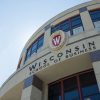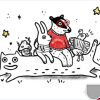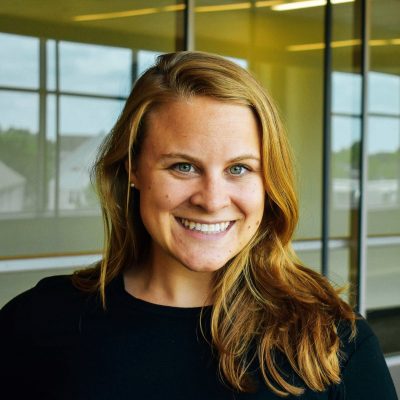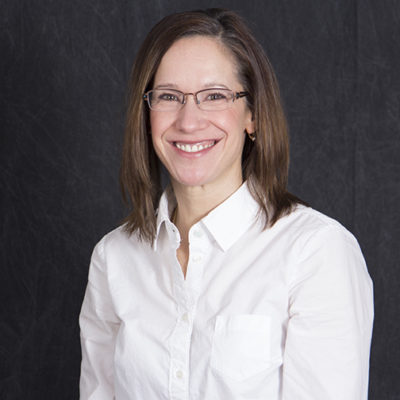Designing human-centered experiences through community
The UW–Madison Design Community is a group of campus members passionate about improving digital experiences at our university through design. Whether you’re a web designer, writer, developer, or just interested in design, you’re welcome to join our community. We aim to make UW’s digital campus more usable, inclusive and consistent for everyone.
Next event
No events returned.
What we do
Host regular events with expert speakers
Provide resources and support
Share digital design info and best practices
Foster design discussions everywhere
Discuss intentional and user‑centered designs
Events
List of articles

Building the UW Theme 2.0
How do you design a scalable, accessible and branded WordPress theme for thousands of creators with widely varying needs? The UW Theme Team will share insights behind their process and approach. Feb 26, 3pm via Zoom.

Driving brand consistency with Adobe Express
Learn how the Wisconsin School of Business empowers users across the school to create branded materials with confidence. Dec 12, 1pm via Zoom.

Strategies & tools to implement a yearlong outreach campaign
In case you missed the last UW Design Community session: Guests from the La Follette School of Public Affairs discussed their Main Street Agenda project, an effort to promote civil dialogue across Wisconsin. Check out the recording and resources.

Creative strategies for compelling storytelling in academic research
Presenters from the Research Impact & Outreach Team in the College of Engineering shared the unique challenges and opportunities they’ve experienced with creative storytelling in academic research.

Social media for all of us: Making content accessible & inclusive
Watch June's session for insights on best practices for social media design—and why making your sites more accessible benefits every part of your work.
- Design Community event archives
Design resources
Make it accessible
Incorporate accessibility into your content, design and development and support all people, including people with disabilities.
Content design
Best practices to plan, create and manage digital content that is accessible, usable and meet the needs of your audience.
UW–Madison brand
The visual and tonal identity of UW–Madison starts here, with the university’ brand rationale, positioning statement and pillars.
Mission, values and history
We aim to build confidence in our colleagues to recognize their strengths as designers, ensuring they understand the importance of their work in the bigger picture. We foster a user-centered design community to help create and maintain high-quality, seamless, intuitive and accessible digital experiences across campus. We value collaboration, inclusivity and continuous learning in our pursuit of a more cohesive digital campus experience.
The UW–Madison Design Community was established in September 2021. Since then, we’ve been working to bring together designers from across our decentralized campus, aiming to create more consistent and user-friendly digital solutions.
- Share the air: We agree to share our perspectives, ideas and narratives while allowing space for others to share their perspective, ideas and narratives.
- Believe people’s narratives: We agree to believe each other’s perspectives, ideas and narratives.
- Confidentiality & permission: We agree we will not share each other’s stories or narratives without permission.
- Fully present and patient: We agree to listen to each other without distraction.
- Default to inquiry over judgment: We agree to be curious and ask questions before making judgments.
- Reflection intent/impact: We agree to reflect on how our intent and impact may differ or align.
- Repair work and self-compassion: When our intent and impact do not align, we agree to:
- Acknowledge harm, make a commitment to improve, and ask what is needed to move forward.
- Be compassionate with ourselves while understanding we are all lifelong learners.
We acknowledge that the University of Wisconsin–Madison is located on ancestral, traditional and contemporary Ho-Chunk lands.
A land acknowledgment is a formal statement, often given orally at the beginning of organized events, celebrations or other activities.
Acknowledgment of the land on which we are situated is an important sign of respect, presence, assertion and recognition of Indigenous self-determination and the relationship between Indigenous people and the land.
In a treaty signed on September 15, 1832, the Ho-Chunk Nation was forced to cede almost 3 million acres of land by the United States government.
That land cession included Teejop (DAY-JOPE), which is known to many of us today as Madison.
In addition to denying the rights of the Ho-Chunk people to hunt and grow crops on these 3 million acres, the treaty began more than 4 decades of attempted ethnic cleansing.
During this time, both the federal and state governments repeatedly, but unsuccessfully, sought to forcibly remove the Ho-Chunk from Wisconsin.
The treaty of 1832 is a foundational document for everyone in this community and allows non-Ho-Chunk people to reside in much of Teejop today.
As Sharon Stein, a scholar of white settlement, put it, there would be no higher education as we know it in the United States without the original and ongoing colonization of Indigenous peoples and lands.
Just like there would be no United States.
We know that expropriated Indigenous land became the foundation of the land-grant university system.
30 years after the treaty of 1832, President Abraham Lincoln signed the Morrill Act, also known as the Land Grant College Act.
This bill distributed public domain lands to help establish and raise funds for new higher education institutions across the nation.
UW–Madison was one of 52 universities that benefited from this.
We recognize the enduring presence and territorial claim of the Ho-Chunk Nation, the custodians of the lands and waters on which we speak today, as well as that of the 11 other First Nations of Wisconsin.
We respect the continued connections to the past, present and shared future in this ongoing relationship with Indigenous and other peoples in the Madison community.
And we also understand that offering a land acknowledgment does not absolve settler-colonial privilege.
And it does not diminish colonial structures of violence — at either the individual or institutional level.
We recognize that a statement like this must be preceded and followed by ongoing and unwavering commitments to First Nation communities.
UW Design Community is part of IT Connects, a coalition of volunteer IT professionals from across the university dedicated to breaking down silos by providing resources and opportunities for UW’s IT community to learn and grow together.
Explore IT Connects initiatives
UW–Madison IT Connects events
- March
- March 16Digital Accessibility Community of PracticeGathering of individuals involved in digital accessibility across campus.1:00 PM







